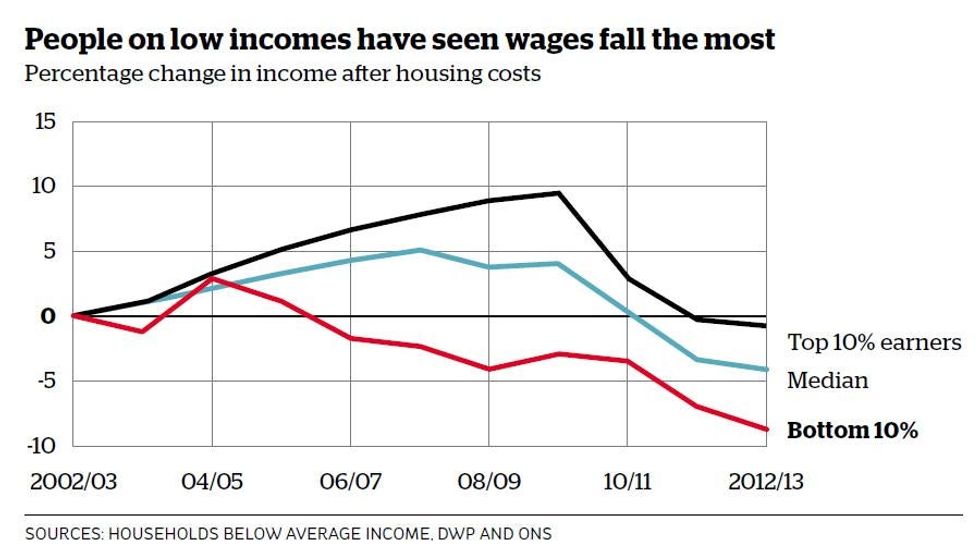News
Cahal Milmo (edited
Nov 24, 2014

Young adults and those in work are now more likely than pensioners to be in poverty following a huge increase in insecure employment such as zero-hours contracts, an influential study warns today.
The Joseph Rowntree Foundation (JRF) said that as many people in working families as in unemployed ones live in poverty – after a decade of upheaval in the labour market which means getting a job is no longer a guarantee of an end to impoverishment.
Its annual report found that the rise of part-time work and low-paid self-employment has also been accompanied by a sharp increase in the number of under-25s living below the breadline as they struggle to cope with falling incomes and high costs from housing to food.
By contrast, Britain’s pensioners have benefited from targeted policies to see a sharp fall in impoverishment to a record low level: from once being the most likely to be poor, the over-65s now have the lowest poverty rate of any age group.
The shift in demographic fortunes is particularly stark for 16 to 25-year-olds, where the poverty rate has risen from 25 per cent in 2003 to 31.5 per cent.
The failure of wages to keep pace with costs means the number of working people claiming housing benefit is rising while average hourly pay has fallen in five years from £13.90 to £12.90 for men and £10.80 to £10.30 for women.
Top 100
The Conversation (0)














